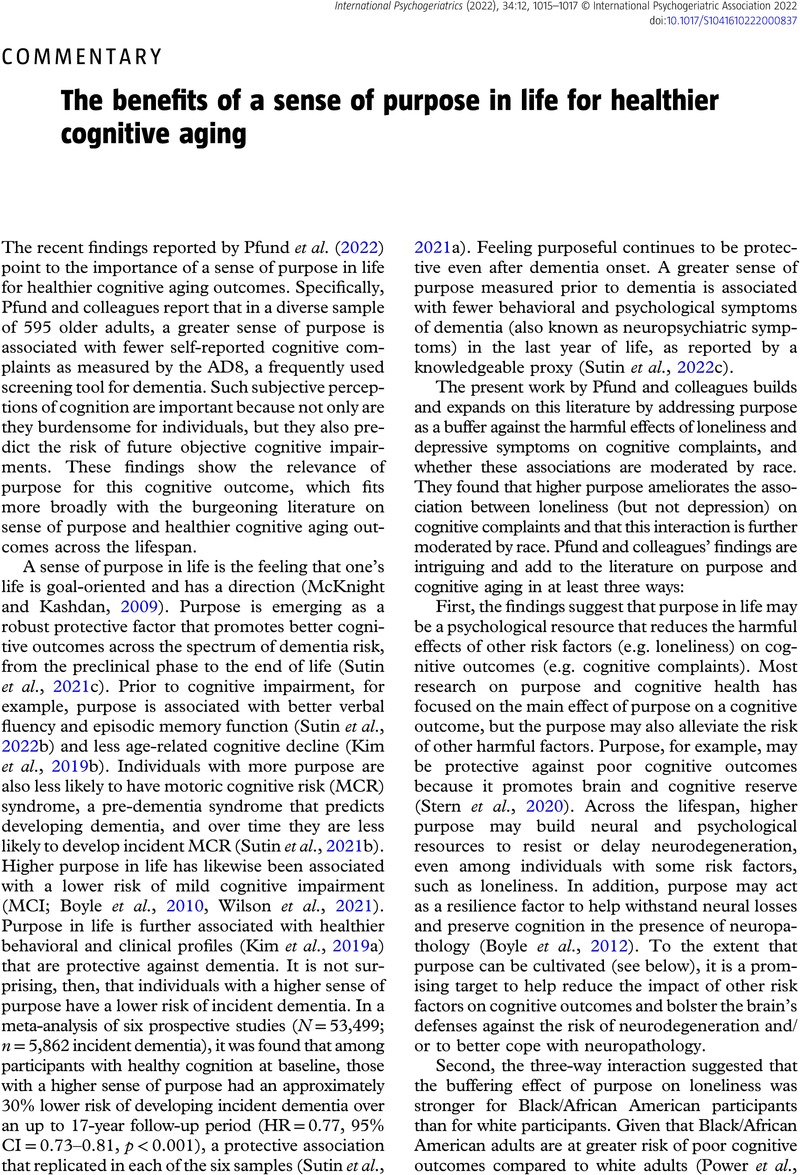Crossref Citations
This article has been cited by the following publications. This list is generated based on data provided by Crossref.
Jeste, Dilip V.
2022.
Subjective cognitive complaints: what do they predict?.
International Psychogeriatrics,
Vol. 34,
Issue. 12,
p.
1005.
Burrow, Anthony L.
2023.
Beyond Finding Purpose: Motivating a Translational Science of Purpose Acquisition.
International Journal of Environmental Research and Public Health,
Vol. 20,
Issue. 12,
p.
6091.
Zábó, Virág
Lehoczki, Andrea
Fekete, Monika
Szappanos, Ágnes
Varga, Péter
Moizs, Marianna
Giovannetti, Giorgia
Loscalzo, Yura
Giannini, Marco
Polidori, M. Cristina
Busse, Beatrix
Kellermayer, Miklos
Ádány, Róza
Purebl, György
and
Ungvari, Zoltan
2025.
The role of purpose in life in healthy aging: implications for the Semmelweis Study and the Semmelweis-EUniWell Workplace Health Promotion Model Program.
GeroScience,



